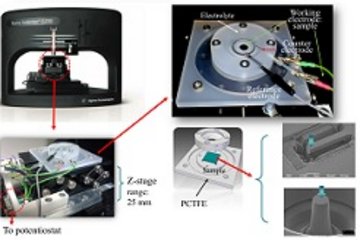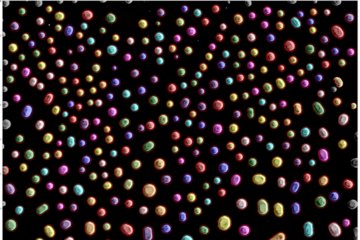All genres
381.
Talk
Structural Materials: Steels. Marie Curie Summer School on Knowledge Based Materials, Hürtgenwald, Germany (2005)
382.
Talk
Microtexture and tensile properties of tempered martensitic steel 55SiCr6. Lecture at the workshop KUL-UGent-RWTH-MPIE, Leuven, Belgium (2005)
383.
Talk
Review of the properties and methods for production of ultrafine grained steels. Lecture at the SMEA Conference 2003, Sheffield (2004)
384.
Talk
Bericht aus der Arbeitsgruppe Weiterentwicklung Umformdilatometer. Lecture at the Sitzung des Werkstoffausschusses (Arbeitskreis Umformdilatometrie), Stahlinstitut VDEh, Düsseldorf, Germany (2004)
385.
Talk
Warmumformbarkeit von Stahl. Lecture at the Seminar 15/04, Kontaktstudium Werkstofftechnik Stahl, Teil III, Technologische Eigenschaften, Institut für Bildung im Stahl-Zentrum, Stahlinstitut VDEh (2004)
386.
Talk
Charakterisierung des Umwandlungsverhaltens bei der Simulation moderner Direktwalzprozesse. Lecture at the Sitzung des Werkstoffausschusses (Unterausschuss für Metallographie, Werkstoffanalytik und –simulation), Stahlinstitut VDEh, Düsseldorf (2004)
387.
Talk
Bericht aus der Arbeitsgruppe Weiterentwicklung Umformdilatometer. Lecture at the Sitzung des Werkstoffausschusses (Arbeitskreis Umformdilatometrie), Stahlinstitut VDEh, Düsseldorf, Germany (2004)
388.
Talk
Microstructure and mechanical properties of ultrafine grained steels. Lecture at the workshop KUL-UGent-RWTH-MPIE, Gent University (2004)
389.
Talk
The effect of Mn on the microstructure and mechanical properties after heavy warm rolling of C-Mn steel. Lecture at the 2004 TMS annual meeting in Charlotte, North Carolina, USA (2004)
390.
Talk
Arbeiten des MPI für Eisenforschung auf dem Gebiet der feinkörnigen Stähle. Lecture at the Sitzung des Arbeitsausschusses des Werkstoffausschusses, Stahlinstitut VDEh, Düsseldorf, Germany (2004)
391.
Talk
Hochfeste Baustähle und deren schweißtechnische Verarbeitung. Berufsfortbildung Deutscher Verband für Schweißen und verwandte Verfahren e. V., Hamburg (2003)
392.
Talk
Ferritic-Pearlitic Steel with Deformation Induced Spheroidized Cementite. Lecture at the International Conference on Processing & Manufacturing of Advanced Materials THERMEC'2003, Leganes, Madrid, Spain (2003)
393.
Poster
Invar effects in FeNiCo medium entropy alloys: from an invar treasure map to alloy design. DPG Regensburg 2019, Regensburg, Germany (2019)
394.
Poster
Corrosion behaviour of an equiatomic CoCrFeMnNi high-entropy alloy compared with 304 stainless steel in sulfuric acid solution. Thermec 2018, Paris, France (2018)
395.
Poster
Cryogenic Focused Ion Beam milling - a promising technique to prevent undesired hydrogen pick-up and hydride formation in Ti-alloys during specimen preparation. Atom Probe Tomography and Microscopy 2018 , Gaitherburg, MD, USA (2018)
396.
Poster
Physical Metallurgy of Segregation and Austenite Reversion in Medium Mn Steels. TMS 2018 Annual Meeting & Exhibition, Phoenix, AZ, USA (2018)
397.
Poster
Physical Metallurgy of segregation, austenite reversion, carbide precipitation and related phenomena in medium Mn steels. Gordon Research Conference: Physical Metallurgy, Biddeford, ME, USA (2017)
398.
Poster
Correlative Study of Carbon Segregation in Low Carbon Martensitic Steels by Combined EBSD, ECCI and APT Analysis. MSE 2014, Darmstadt, Germany (2014)
399.
Poster
Influence of Chromium on the Low Temperature Austenite Reversion through Local Equilibrium in Martensitic Stainless Steel. MSE 2014, Darmstadt, Germany (2014)
400.
Poster
Cyclic γ reversion enabled microstructure and mechanical property restoration in TRIP-maraging steels. MSE 2014, Darmstadt, Germany (2014)









